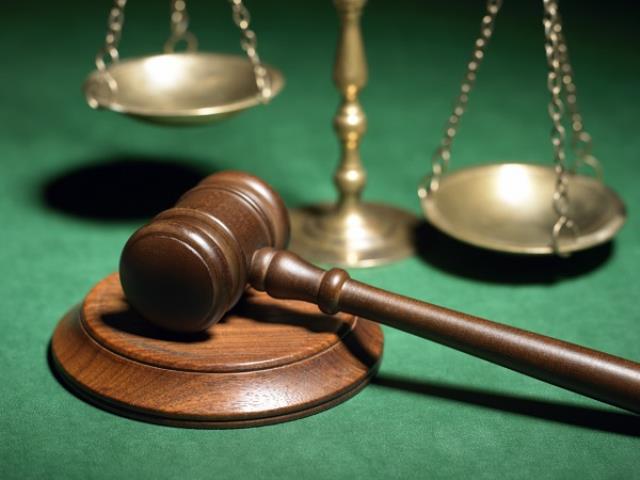It is widely believed that the most veritable instrument for the promotion and sustenance of democratic governance is the law. This irrefutable assertion is further reinforced by the universally acknowledged principles of the rule of law which presuppose the supremacy of the law, the inviolability of the law and absolute respect for fundamental human rights and dignity of man.
The rule of law excludes the idea of any exemption of officials or individuals from the duty of obedience to the law which governs other citizens, or from the jurisdiction of the courts and ordinary tribunals. The law is an arbitrary command, necessary for the speedy growth and development of the society. It is no respecter of person or persons. Everyone is equal before the law.
Viewed against this backdrop, as it affects our development as a nation, it has become imperative for people to appreciate the importance of strict compliance with the law. It is often said that a society that has no respect for her laws is close to the jungle and is doomed to anarchy and retrogression. But a critical evaluation of the nation’s democratic score card shows that the major problem militating against the speedy realization of this noble dream is our blatant failure to obey the laws of the land.
This ugly trend has given rise to political violence, corrupt practices, insurgency, destruction of public property, election rigging, human rights abuses, misappropriation of public fund and unfortunate legitimization of the culture of impunity by many, including those who are supposed to be in the forefront of the campaign for national transformation.
For instance, one James Lebi-Ayodele made headlines in July this year when an Abuja High Court sentenced him to a two-year jail term—and asked him to refund one hundred thousand naira to the government in restitution—for forging an Institute of Chartered Accountant of Nigeria (ICAN) certificate. According to Dr. Farooq Kperogi, he was convicted of “forgery of certificate and for being in possession of a forged document, contrary to the law. He was also convicted of parlaying his forged ICAN certificate into getting a promotion at the office of the Auditor-General of the Federation.
A week after, the media reported that former Finance Minister, Kemi Adeosun, forged an NYSC exemption certificate, which she used to occupy the exalted office as Minister of Finance. By Nigerian law, Adesoun committed at least two offenses: failure to participate in the NYSC scheme, (having graduated from a Polytechnic before the age of 30) and forgery. In law, forgery is forgery; whether by James or by Adeosun. Thus, Kemi Adeosun should have also been prosecuted like James. But no; she resigned as a Minister and is allowed to be walking our streets a free woman.
Similarly, there was a media report that one Ahmed whose credentials were found to be forged after an audit in 2014—and fired as a consequence—is now a Permanent Secretary in a federal Ministry. Again, Okoi Obla, Chairman of the Special Presidential Investigative Panel for the Recovery of Property, was discovered to have forged his WASC to gain admission to study law at the University. He has not lost his job but yet to be prosecuted. Adeleke, the PDP governorship candidate in Osun state is today in Court for WAEC scandal, yet there are thousands of such cases in government as well as in both public and private sectors, unprosecuted.
What has become clear in all of these is that in Nigeria, justice is not blind. Its blindfolds are off. The “wrath” of justice is reserved only for the poor, the vulnerable, those who are not influential and political opponents; in short everyone outside the orbit of the reigning power structure.
But let this be known: No nation that punishes its poor and protects its powerful for the same offense can endure. Usman Dan Fodio was right when he said, “A kingdom can endure with unbelief, but it cannot endure with injustice.” Before him, Aristotle said, “The only stable state is the one in which all men are equal before the law.”
For every second that James remains in jail while Adeosun, Ahmed, and others, not only walk free but live off the fat of the land, even when they committed the same offense as he, the very foundation of Nigeria chips off. A nation whose foundation comes off piecemeal as a result of blatant and in-your-face judicial double standard will sooner or later give way. That was what Frederick Douglass meant when he said, “Where justice is denied, where poverty is enforced, where ignorance prevails, and where any one class is made to feel that society is an organized conspiracy to oppress, rob and degrade them; neither persons nor property will be safe.”
The fight against corruption and change agenda of the federal government will remain a mirage unless we all resolve to obey the laws of the land and do things in accordance with approved norms and practices. The task of nation-building becomes easier when the government and the governed obey the law, rather than seeing the law as a mere instrument of state manipulation.
Commentary: The Sacrosanctness Of The Law

More




Comments are closed for this post.